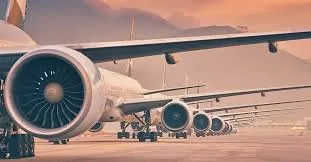Due to technical developments and progress in international economic and political relations, air transportation has become the travel method of choice worldwide. However, despite these developments, the possibility of aviation accidents – and therefore liability for air carriers – is often still unavoidable. This update offers a general summary of air carriers' liability for death or bodily injury arising from aviation accidents in both domestic and international flights.
Liability in domestic flights
Civil liability
Article 106 of the Civil Aviation Act governs national air transportation, and thus applies to domestic flights. In cases that are not covered by the act, the Warsaw Convention 1929 and Hague Protocol 1955 apply. If a case is not regulated by these conventions, obligations and trade law principles apply.
According to Article 120 of the act, an air carrier is liable for damages arising from death or bodily injury in case of aviation accidents that occurred in the aircraft or during boarding or alighting. Depending on the fault of the air carrier, this liability may be limited or unlimited. The cases in which the air carrier cannot be held liable are stated in the act. Accordingly, the liability of air carriers is limited in principle. Since the 1991 entry into force of the Montreal Protocol in Turkey, the liability of air carriers has been limited to 16,600 special drawing rights. Under Article 124 of the act, an air carrier may increase its liability limit by agreement.
An air carrier's liability will be unlimited if:
- no flight ticket is issued or the flight ticket is not issued as required; or
- the damage is caused by intentional, reckless or negligent actions on the part of the air carrier or its employees.
However, it is possible for an air carrier to benefit from the possibility of exculpation if it can prove that all the necessary measures were taken or that there was no possibility to take such measures.
Criminal liability
In aviation accidents that involve death or injury, certain provisions of the Criminal Code also apply. Accordingly, in case of death, the responsible individuals will be prosecuted ex officio on a charge of negligent manslaughter. As airlines are legal entities, their legal representatives (eg, board members or directors) can also be prosecuted and sentenced.
In case of bodily injury, the responsible individuals will be prosecuted following a complaint by the injured parties. If the case involves conscious negligence, the prosecution of responsible individuals will be ex officio.
Actions for damages
In case of the death of a passenger in an aviation accident, his or her relatives may file a suit for damages against the air carrier and its employees. If a bodily injury claim arises from an aviation accident, only the injured party ( i.e, the passenger) has the right to demand compensation for material and immaterial damages.
In such cases, the relatives of the decedent or the injured passenger must prove the occurrence of an aviation accident and the causation between the damages and the accident. According to the related laws, an aviation accident must occur either in the aircraft or during boarding or alighting.
The right to institute legal proceedings against the air carrier is limited to two years from the date on which the aircraft landed, or the date on which it was scheduled to land (Article 131 of the act and Article 29 of the Warsaw/Hague Convention).
Following the death or bodily injury of a passenger due to an aviation accident in a domestic flight, the Code of Obligations applies. The relatives of the decedent may demand:
- treatment and funeral expenses, damages for an inability to work (if applicable) and compensation for material damages (Article 53 of the code); and
- compensation for immaterial damages for emotional distress following the death of the passenger (Article 56).
An injured passenger may demand:
- compensation for his or her material damages (eg, treatment expenses, loss of work) (Article 54); and
- compensation for immaterial damages (Article 56).
Liability in international flights
With regard to the liability of air carriers in international flights that start or end in Turkey, the Montreal Convention 1999 applies. This convention came into force in Turkey in March 26 2011. This convention is therefore applicable to flights that commenced after this date.
In case of the death or bodily injury of a passenger in an aviation accident, the convention limits the liability of the air carrier to 100,000 special drawing rights. The air carrier is liable for all material damages caused by an aviation accident. However, the convention does not give injured persons or relatives of deceased passengers the right to claim for immaterial damages that did not result from material damages (Article 29 of the convention). Accordingly, only immaterial damages that arise from material damages may be claimed from the air carrier. In this regard, the scope of damages arising from aviation accidents in international flights differs from damages arising from aviation accidents in domestic flights. Nevertheless, if the passenger suffered no material damages or no aviation accident occurred under the act or the conventions (ie, only immaterial damages were caused), injured persons can claim for such immaterial damages.
The liability of air carriers is regulated by international conventions and the rights of injured parties are thereby guaranteed by these laws. As Turkey is a party to international conventions such as the Montreal Convention, the Warsaw Convention and the Hague Protocol, Turkish aviation laws accord with international conventions, so that the provision of rights under national and international laws is consistent.


